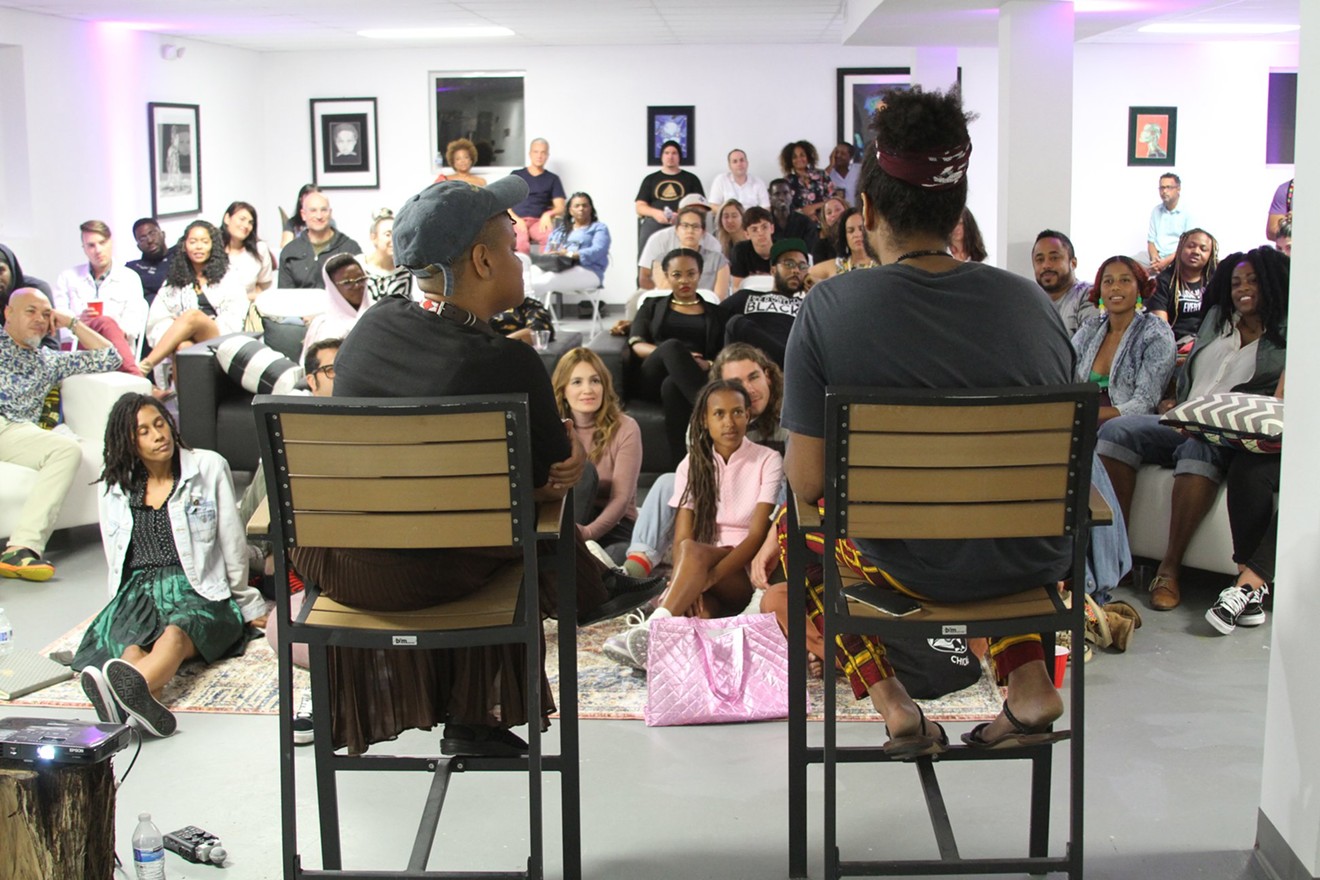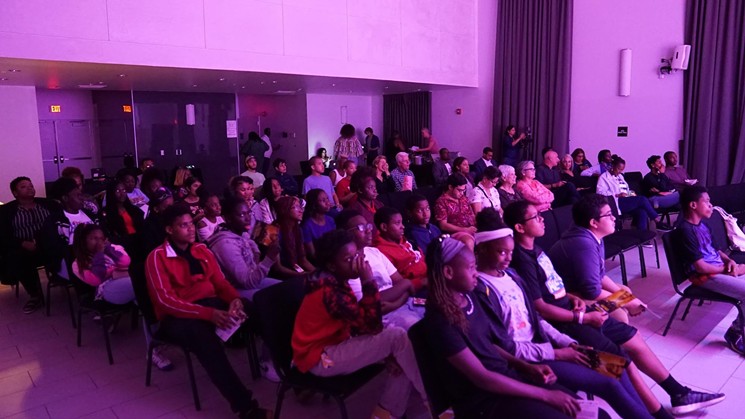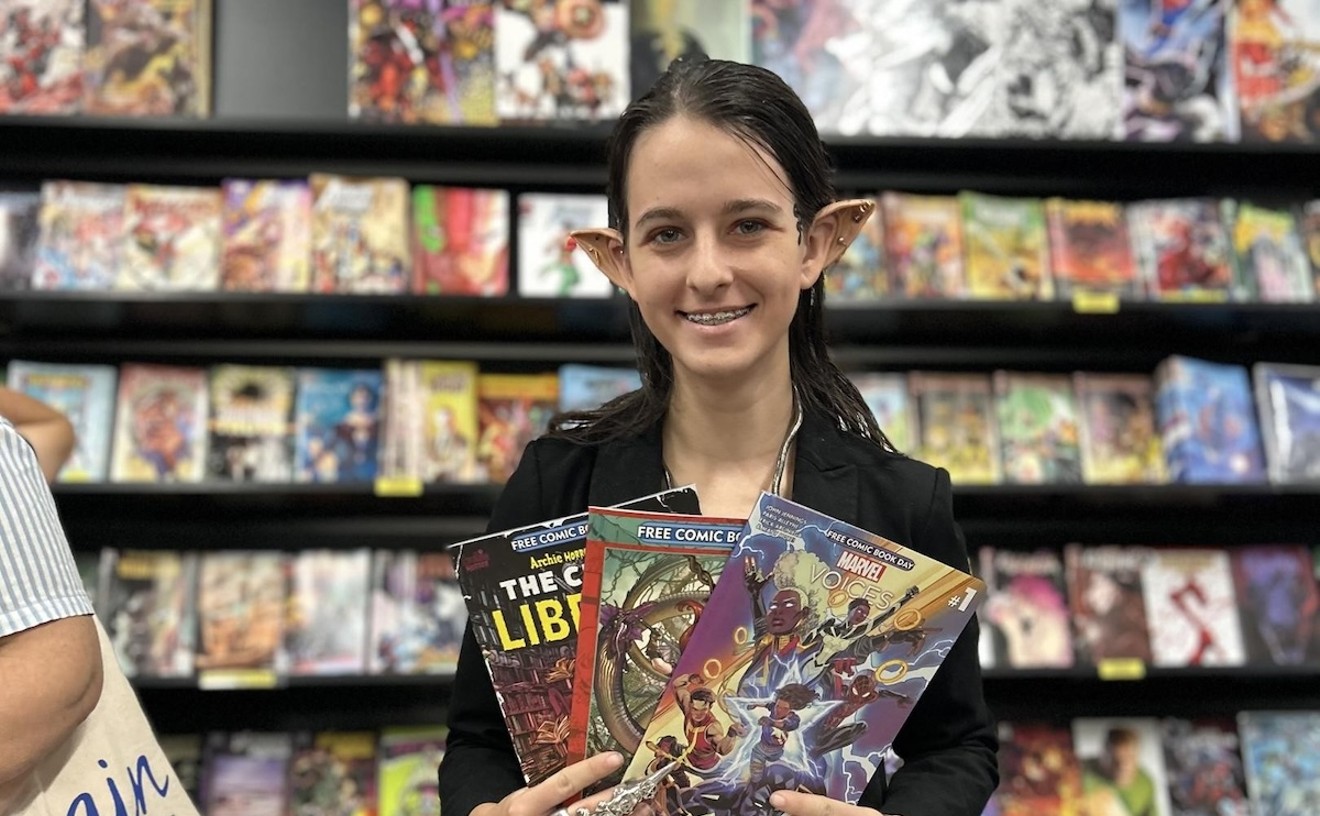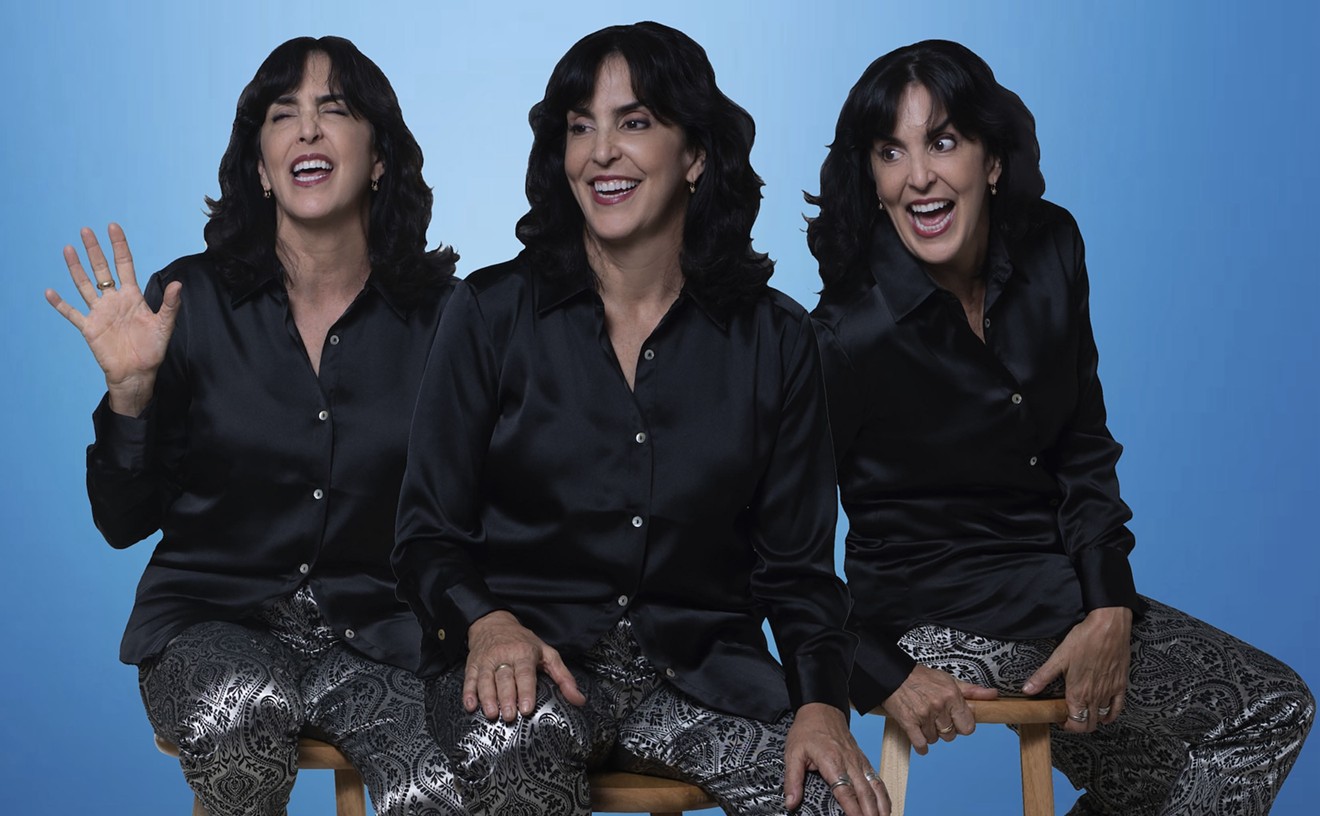Overtown has long been a mecca for culture. The deeply rooted community in the historic heart of Miami was a center of entertainment in the 1940s and ‘50s, comparable to Miami Beach. Some of most iconic black artists of the time performed in the neighborhood. But Overtown’s cultural significance is often overlooked.
The folks at the Black Lounge Series make it a point to remind the locals of their city’s history — where they came from and where they can go.
“The mission of Black Lounge Film Series has many layers,” explains founder Rachelle Salnave. “We want to create a unique movie experience in the heart of historic Overtown. We want moviegoers to enjoy and learn about the black global experience through our special curatorial selection, and we are eager to promote filmmakers from all over the world that tell fascinating stories about the African diasporic journey.”
Winners of the 2016 Knight Arts Challenge, The Black Lounge Film Series shows movies that uplift black culture in an area whose own culture is often overshadowed. Entertainers such as Count Basie, Ella Fitzgerald, Cab Calloway, Josephine Baker, Billie Holiday, and Nat King Cole regularly lodged in Overtown, making it a hot spot for music, food, and local get-downs. Other notable personalities who advocated for the cultural catalyst of Overtown included W. E. B. Du Bois, Zora Neale Hurston, Joe Louis and Jackie Robinson. More recently, however, Overtown has been subject to crime, poverty, unemployment, and a slow-burning gentrification.
The Black Lounge Series aims to create a cinema platform that showcases the forgotten golden age of yesterday, infused with a hopeful promise of tomorrow. Its organizers began to roll their reel in February 2018 with I've Gotta to Be Me, a documentary about Sammy Davis Jr. directed by Sam Pollard. The young film series was able to catch the eye of filmmakers Andrew Dosunmu and Terence Nance just six months into their movement. They would also go on to collaborate with the Perez Art Museum Miami in a showcase titled "Overtown goes to PAMM” and “PAMM goes to Overtown" in a weekend long activation.
The Black Lounge Film Series coordinates three branches of local programming that explore the global black experience while bringing in award-winning films to various art spaces in Overtown: monthly film screenings, quarterly community events at Gibson Park, and a Filmmaker Speaker Series at the Culmer Library. Their efforts aim to revitalize the historic neighborhood into the thriving travel destination it once proved to be.
Spearheaded by Salnave, a Haitian-American filmmaker, the series has been a dream years in the making. Growing up in Harlem, New York, in the 1980s, she was inspired by African American films and actors who projected heroism in their journey to freedom and excellence. She’s studied film production both at Hunter College in New York City and the University of Miami, eventually earning her an M.F.A. from the Motion Pictures department at UM. She’s produced two historical feature documentaries on the gentrification of Harlem, and an Emmy-nominated film about her Haitian identity.
But she’s quick to point out that she couldn’t have started the Black Lounge series alone. She has teamed up with her partner, Jean H. Marcelin, to help facilitate community programs for families through his non-profit organization, Children’s Hope Chest of Dreams, Inc. Other local partners, including the Southeast Overtown and Parkwest Community Redevelopment Agency (CRA), as well as The Betsy Hotel, have also helped it thrive.
“All of our guests stay in the Betsy Hotel, and [that] is a huge testament to how far Miami has come,” Salnave says. Just 50 years ago, she points out, “black entertainers were only able to perform on the beach and not sleep [there]; they were told to go to Colored Town.”
For its next event, the series is teaming up with Blitz Bazawule, a filmmaker and musician born in Ghana and based in Brooklyn, NY. Using music as a platform to merge his African roots with American hip hop music, he’s labeled himself as the Ambassador, representing the continent and the diaspora. Creating four studio albums, Blitz always implemented what he calls “magical realism” in his music and filmmaking.
“My choice to expand into film after making music for the last 10 years is both because film allows audience to walk in the shoes of characters and also attracts a wider audience because it's not as heavily categorized in terms of genre,” Bazawule explains.
His directorial feature debut, The Burial of Kojo, is currently making festival rounds. It’ll screen as part of the Black Lounge Film Series Sunday at the Overtown Performing Arts Center. The film will premiere on Netflix March 31.
The Burial of Kojo. Part of the Black Lounge Film Series. 6 p.m. Sunday, February 17 at the Overtown Performing Arts Center, 1074 NW Third Ave., Miami; overtownpac.co. Admission costs $13, or $5 for Overtown residents.
[
{
"name": "Air - MediumRectangle - Inline Content - Mobile Display Size",
"component": "19274298",
"insertPoint": "2",
"requiredCountToDisplay": "2"
},{
"name": "Editor Picks",
"component": "17482312",
"insertPoint": "4",
"requiredCountToDisplay": "1"
},{
"name": "Inline Links",
"component": "18711090",
"insertPoint": "8th",
"startingPoint": 8,
"requiredCountToDisplay": "7",
"maxInsertions": 25
},{
"name": "Air - MediumRectangle - Combo - Inline Content",
"component": "17482310",
"insertPoint": "8th",
"startingPoint": 8,
"requiredCountToDisplay": "7",
"maxInsertions": 25
},{
"name": "Inline Links",
"component": "18711090",
"insertPoint": "8th",
"startingPoint": 12,
"requiredCountToDisplay": "11",
"maxInsertions": 25
},{
"name": "Air - Leaderboard Tower - Combo - Inline Content",
"component": "17482313",
"insertPoint": "8th",
"startingPoint": 12,
"requiredCountToDisplay": "11",
"maxInsertions": 25
}
]













